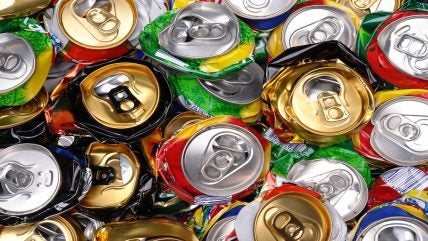
The National Association for PET Container Resources (NAPCOR) has highlighted the potential environmental repercussions of prohibiting the sale of polyethylene terephthalate (PET) bottles at large venues such as airports and stadiums.
NAPCOR’s lifecycle analysis (LCA) from 2023 has revealed that recyclable PET bottles may be more environmentally friendlier than alternative packaging options.
In San Francisco Airport, US, where the sale of PET water bottles was banned since August 2019, NAPCOR’s LCA research indicates that replacing the 9,000 water bottles sold daily with aluminium cans could result in approximately 1,100 tonnes of additional carbon dioxide equivalent emissions.
This figure is based on the comparison of greenhouse gas impacts between PET water bottles and aluminium cans.
The LCA also claimed that PET beverage bottles, which are 100% recyclable and can be made entirely from recycled content, have a lower environmental impact than aluminium and glass packaging in the US.
PET bottles also reportedly outperform these alternatives in several other environmental metrics, including energy and water consumption and emissions that contribute to smog formation, acid rain, and eutrophication potential.
How well do you really know your competitors?
Access the most comprehensive Company Profiles on the market, powered by GlobalData. Save hours of research. Gain competitive edge.

Thank you!
Your download email will arrive shortly
Not ready to buy yet? Download a free sample
We are confident about the unique quality of our Company Profiles. However, we want you to make the most beneficial decision for your business, so we offer a free sample that you can download by submitting the below form
By GlobalDataIn a comparison between a 12oz aluminium can and a 16.9oz PET plastic water bottle, the study found that the PET bottle consumes 80% less energy during production, creates 80% less solid waste, uses 53% less water, and has a 74% lower global warming potential.
NAPCOR executive director Laura Stewart said: “There’s a common and dangerous misconception regarding the impact of plastics versus other packaging materials.
“However, research unequivocally shows that when it comes to beverage packaging, the more sustainable answer is polyethylene terephthalate, better known as PET.
“Large venues are touting environmental benefits with a ban on plastic containers; in fact, these moves are counterproductive and ultimately cause more harm than good.”
The report follows a study indicating that New Jersey’s plastic bag ban led to a tripling of plastic usage in the US state.



